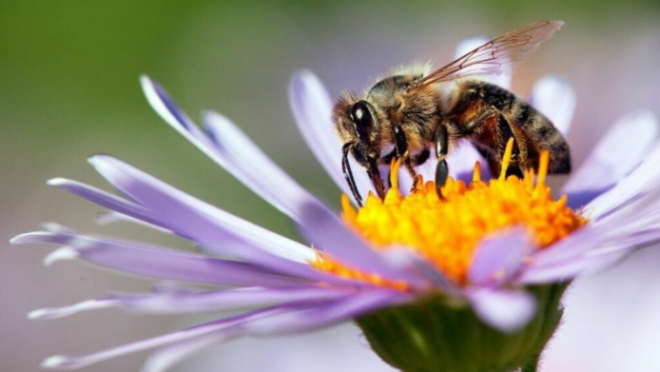World Bee Day: Importance of bees in the ecosystem
World Bee Day: Importance of bees in the ecosystem

On World Bee Day (WBD) today (20 May), it is important to recognise the efforts to nurture these important species critical for food and nutrition security, and the continuance of ecosystem services for sustainable agriculture and horticulture.
By transferring pollen from one flower to another, bees and other pollinators facilitate the production of plenty of fruits, nuts and seeds, enabling diversity and better quality of food.
Key findings by the Food and Agriculture Organization of the United Nations (FAO) show that globally, 40% of invertebrate pollinators (particularly bees and butterflies) are threatened with extinction.
According to the FAO, up to $577 billion worth of annual global food production relies on explicit contributions by bees and other pollinators.
Nearly 90% of all wild flowering plants depend to some extent on pollination and about 75% of world’s food crops (including onions, pumpkins, apples, mangoes and sunflower) depend on pollination.
WBD is celebrated on 20 May annually, since 2018. This day aims to raise awareness of the public and political decision-makers on the essential role that bees and other pollinators play in keeping people and the planet healthy and the need for their conservation.
Protecting bees and other pollinators would considerably mitigate problems related to the global food supply helping to address hunger in developing countries.
WBD provides an opportunity for all of us – including governments, private sector organisations and civil society to act to protect and augment pollinators and their habitats, and improve their abundance and diversity. The importance of bees in the future of the ecosystem
Bees are important for biodiversity, but biodiversity is also important for bees. When large mono-crop plantations dominate the landscape, managed with chemicals, natural biodiversity is diminished.
Most insecticides are deadly to bees, and indiscriminate herbicide use can substantially reduce wildflowers that they need for their sustenance.
Thus, adopting sustainable agricultural practices can help in promoting biodiversity.
Further, ecosystem services provided by bees can compensate for low levels of fertiliser application, thereby mitigating the negative effects of agriculture on the natural environment. Therefore, efforts to promote natural farming and integrated farming approaches should actively integrate apiculture.
Promotion of apiculture alongside agriculture can be a win-win solution that reduces input costs and enhances farmers’ incomes.


